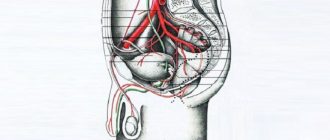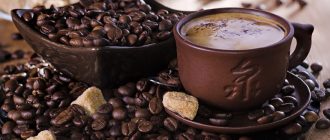The diet for prostate cancer is based on the principles of healthy eating. It excludes foods and dishes that promote the growth of cancer cells, and the basis of the diet is easily digestible plant foods. Nutrition during hormonal or chemotherapy, as well as removal of the prostate gland, may be slightly different, taking into account the characteristics of the body during these periods.
General principles of diet
The diet for prostate cancer is aimed at improving the patient’s life and stimulating the functioning of his body to combat the negative effects of therapy. It is believed that maintaining proper nutrition has a positive effect on human survival.
The principles of nutrition are quite similar to those for prostatitis and adenoma, but they also have their differences. In addition to restrictions on some products, they include calculating the required energy value, maintaining the proportion of proteins, fats and carbohydrates, restrictions on cooking methods and the number of meals.
The menu for a patient with prostate cancer is compiled taking into account the patient’s weight:
- for 60 kg, the energy value of the daily diet should be 1800-2400 kcal;
- for 70 kg – 2100-2800 kcal;
- for 80 kg – 2400-3200 kcal.
This is especially true if you are overweight, because excess fat in the body contributes to the development of cancer.
Diet for prostate cancer should consist of 55% carbohydrates, 30% fats and 15% proteins. Animal fats must be replaced with vegetable fats. For this, it is recommended to use olive and corn oil; they are rich in vitamin E, which is very beneficial for the prostate. Antioxidants are also useful, so a considerable part of the list of recommended foods consists of products containing them.
For prostate cancer, it is recommended to eat in small portions, but often - 5 times a day. It is important to control the intake of salt and calcium into the body. It is recommended to consume no more than 5 g of salt per day (1 level teaspoon); foods containing calcium should be minimized or avoided.
Cooking should be done by boiling, baking, stewing or steaming. The food consumed should not be hot or cold, but slightly above room temperature (about 30 °C).
A separate point is the drinking regime; it is recommended to drink at least 3 liters of still mineral or clean water per day. You need to drink water in small portions throughout the day, and reduce or abstain from it at night.
It is worth understanding that the diet for prostate adenocarcinoma is not temporary, but permanent.
Necessary and healthy foods
Recommended products for prostate cancer:
- vegetables: tomatoes, cucumbers, carrots, bell peppers, cabbage (all types), greens, lettuce, spinach, beets, turnips, zucchini, pumpkin;
- fruits: avocados, bananas, grapes, apricots, citrus fruits, apples, plums, pears, mangoes, pineapples, melons, strawberries, berries;
- meat: chicken, turkey, rabbit, hare (it is recommended to eat no more than 100-150 g of meat per day);
- seafood: seaweed, lean fish, fish milk and caviar (unsalted);
- bakery products: bran bread;
- whole grain cereals: rice (varieties with a low amount of starch), buckwheat, barley and oatmeal (not cereal);
- pasta from durum wheat;
- legumes and soybeans;
- low-fat fermented milk products: kefir, feta cheese, cottage cheese;
- drinks: green and herbal tea, mineral water, freshly squeezed vegetable and fruit juices;
- vegetable oils: olive, flaxseed, sesame;
- spices: turmeric, coriander;
- other: nuts, dried fruits, dates, mushrooms.
Recent studies of oncological processes have revealed the presence of natural suppressors (substances that suppress the division of cancer cells). They are found in some foods, such as cauliflower sprouts, Brussels sprouts, and green tea.
What not to eat
Foods you should not eat if you have prostate cancer:
- fatty foods, fried, salty and spicy foods;
- smoked meat and fish products;
- pickled products;
- semi-finished products and canned food;
- sausages and sausages;
- foods high in sugar (desserts, cakes, candies, packaged juices, etc.);
- products with dyes;
- fatty dairy products (sour cream, cream, milk, cheese);
- coffee and strong teas;
- carbonated drinks;
- alcohol;
- vinegar.
The consumption of flour products is limited (only pasta products made from durum wheat and baked goods made from bran are allowed).
Menu differences depending on the degree of disease
Different degrees of the disease require some changes due to their characteristics. For example, at stages 1-2, nutrition should help slow down the growth of cancer cells, and at stages 3-4, it should help the body recover as much as possible after therapeutic procedures and improve the overall quality of life.
At stage 1
The diet for stage 1 involves only minor changes - giving up junk food (especially fast food) and drinks, increasing vegetables and fruits in the diet, eating seafood (if previously they were only slightly present in the diet). Nutrition should be complete and varied; there should not be a clear predominance of only a few products on the menu.
At stage 2
Diet for stage 2 prostate cancer already includes restrictions, primarily on fatty foods. You should also reduce your meat intake, especially pork and beef, and switch to dietary protein foods - chicken, rabbit and seafood. Dairy products should also be in fairly small quantities, and their fat content should be carefully monitored.
At stages 3-4
The diet for stage 3 and 4 prostate cancer includes the entire list of restrictions. It should also be understood that they are very important for prolonging life, so they must be followed as carefully as possible. The main difference from nutrition at stages 1 and 2 is the even smaller amount of carbohydrates in food. Some vegetables should be thermally processed, some should be consumed raw.
During radiation therapy
Diet during radiotherapy of the prostate gland should contain more proteins and polyunsaturated fatty acids (dietary meat and seafood, vegetable oils). Products containing pectin will be very useful, because it helps remove radionuclides from the body (pectin is found mainly in fruits). You also need to take into account that caloric intake during the periods between sessions of hormonal or radiation therapy should be reduced by 300 kcal.
Products with preservatives and dyes can cause more harm than usual during radiation therapy, so they should be completely excluded from the menu.
During radiation therapy of the prostate, vitamins may be prescribed at the discretion of the doctor as an additional measure. The most useful will be complexes including vitamins E, K, A.
With hormonal therapy
Nutrition during hormonal therapy for prostate cancer is based primarily on the consumption of plant foods. Meat and fish broths are excluded. Of animal food, only dietary white meat is allowed in quantities not exceeding 100 g per day. The consumption of cheeses and eggs is also strictly limited.
Among vegetables, it is recommended to limit the consumption of radishes, spinach, beets and garlic.
During chemotherapy
This method of treatment has a strong effect on the entire body, including the digestive organs. Often there may be no appetite at all, so it is recommended to drink 150 ml of warm water 30 minutes before meals. If nausea occurs, you can eat 1-2 biscuits.
Low-fat fermented milk products are considered healthy, but they can cause digestive upset, so their consumption should be rationed. Boiled potatoes and flaxseed can also help with this.
Other useful products will be buckwheat porridge and liver - they normalize the functioning of the circulatory system during this period.
After prostate removal
The diet after removal of the prostate for cancer is based on foods from the list of permitted ones, but it is recommended to diversify the diet even more with vegetable foods, legumes and seafood. Green tea is considered the healthiest drink, but fresh fruit and vegetable juices are also acceptable.



